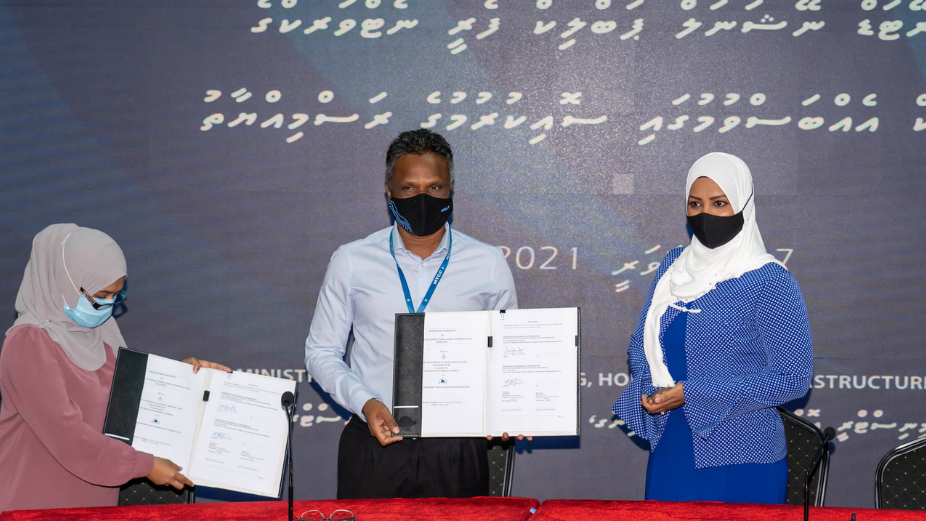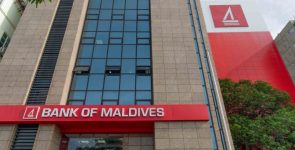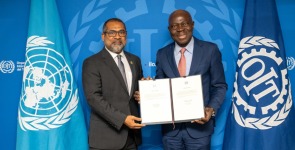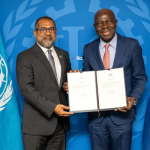
Ministry of National Planning, Housing and Infrastructure and Maldives Transport and Contracting Company (MTCC) signs the framework agreement for a high-speed ferry network as part of the first phase of the Integrated National Public Ferry Network project.
Establishing a ferry network is one of the pledges of the current administration, and the project is aimed to connect the dispersed population of the Maldives through an affordable safe, and efficient transportation network.
The agreement was signed by the Managing Director of MTCC Adam Azim and Director General of the Ministry Fathimath Shaana in a ceremony yesterday.
The network will categorize the country into three regions and six zones. The system is designed to create two separate networks for passenger transit as well as cargo ferries within and in between the regions, effectively linking maritime transport with land and air transport.
Azim said that it would be tough to provide services seven days a week, but services would be carried out for the convenience of the public earnestly by the company.
The Planning Ministry mandates providing services every day, and the ministry has prepared a contingency plan in case of service disruption.
In major population centers, services are to be provided twice a day. Islands with airports and hospitals are also to be operated to every day.
Managing Director Azim clarifies that the agreement signed was the framework agreement for the ferry system, and a service agreement would be signed in the future.
The 47 feet speedboats acquired for operation are said to have the capacity for 40-50 persons. And 14 speedboats are to be used a day, with an additional three on standby in case of service disruption. The services are also to be made easier for people with disabilities.
“For sure, when the ferry network is established, citizens would gain a lot of conveniences,” said Azim.
The project is to commence by September, and MD Azims reassures that despite the short timeline, MTCC was working to start operations by then. He added that funds would not be an issue, but challenges would arise in the supply of engines.
The network aims to facilitate inclusive regional development by connecting people and services, accelerate social and economic growth, improve efficiency in the delivery of public services and improve mobility and accessibility for all citizens in all areas of the nation.












